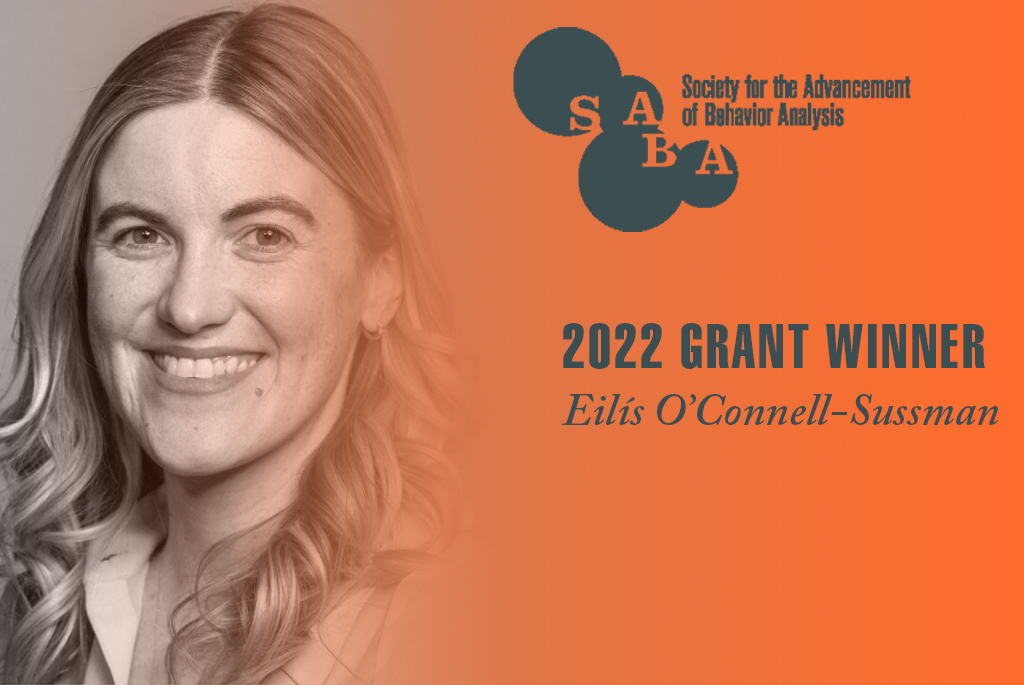Caregiver Training for Infants With Down Syndrome

By Eilís O’Connell-Sussman, 2022 awardee of a Sidney W. & Janet R. Bijou Grant
Eilís O’Connell-Sussman earned her MA in autism and intellectual disabilities at Teachers College, Columbia University, and continued her education in applied behavior analysis (ABA) at the Florida Institute of Technology. She is currently a Ph.D. student in Endicott College’s ABA program under the advisement of Dr. Mary Jane Weiss. Her research interests focus on applying the science of ABA to individuals with intellectual disabilities, specifically Down syndrome. She is interested in researching interventions that address the Down syndrome phenotype and can shape early intervention programs to support child development. Additional interests include culturally sensitive interventions and treatment outcomes related to the family as a whole and compassionate care skills for behavior analysts.
The Bijou Grant will support her research work in caregiver training for infants with Down syndrome. A behavioral phenotype for individuals with Down syndrome (Chapman, 2006; Fidler, 2005) has highlighted particular strengths and weaknesses related to communication repertoires that can inform the intervention strategies and skillsets addressed within an early intervention framework (Feeley et al., 2011). Drawing upon weaknesses, salient targets for communication development can be pinpointed while capitalizing on phenotypic strengths, such as social skill development, in the use of reinforcement contingencies (Fidler, 2005). Individuals with Down syndrome have relative weaknesses within communication that begin in infancy, such as delays in vocal imitation, requesting, first words, and vocabulary growth (Neil & Jones, 2016). Particularly, infants with Down syndrome tend to generate more nonspeech sounds and show delayed onset of canonical babbling (i.e., repeating consonant-vowel combinations) (Roberts et al., 2007). Down syndrome is identified at gestation or birth and allows for early intervention paradigms that can be taught to caregivers and implemented within the home to ensure developmental skills are acquired within a time frame that mirrors typical development.
The proposed study would replicate previous findings (Fiani et al., 2021; Neimy et al., 2020) on the success of operant conditioning with infants to increase infant vocalizations. It would further expand prior work to examine the bidirectional relationship between infant and caregiver interactions and to evaluate if the caregiver’s use of contingent vocal imitation increases related to infant responses.


